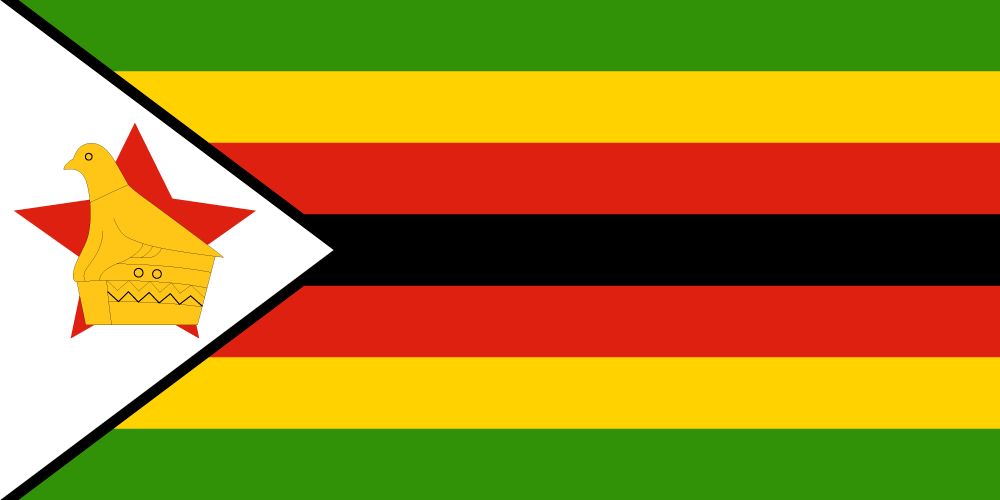
Introduction
The Republic of Zimbabwe is located in Southern Africa, and is a landlocked country with a population of 14.44 million. Its capital and largest city is Harare, with the second largest city being Bulawayo. The country has 10 national languages, with the most prevalent being Shona and English. Being a landlocked country and not having much economic stability, it has a relatively low GDP per capita of USD $2,147.
The country has been plagued by many problems, such as not being able to participate in maritime trade, being in a region that is often times unstable, as well as having many internal conflicts. However, Zimbabwe has a strong manufacturing and agriculture sector, and a functioning stock exchange, which creates employment opportunities.
Application Process
Unlike most developed countries, Zimbabwe has not made the transition to digital job application, due to a lack of the infrastructure required amongst the populace. Well paying jobs are not easy to come by due to the large numbers of applicants for each position, so it is important vet potential applicants. Because of the many languages within the country, employers tend to favor candidates that belong to the same region as there will be no gap in communication.
Newspapers
The most popular form of announcing vacancies is through posting them in newspapers. Newspapers are widely available and have become the cultural norm for finding potential employment opportunities. Many companies choose to use local newspapers, while MNCs often post their vacancies in national newspapers to recruit the best talent. There are also special gazettes that have the sole purpose of containing vacancies, such as the Zimbabwe Human Capital Gazette.
In Person
For most lower level of labor positions, in person applications are the abundant. Because Zimbabwe has such a strong manufacturing center, companies rely on hiring local labor to work for them, and their selection is done based on candidates that show motivation and drop off their credentials at the companies themselves.
Interview and Selection
The interview and selection process is quite competitive, once again because of the number of applicants to each position. Good applicants may not even be selected just because of the luck of the draw, as there is no automated system that ranks individuals based on their qualifications.
Once candidates are selected, the story changes. Interviews are quite relaxed and informal. Though the candidate should be on time, the interviewer may often be late, which in this culture is not seen as a sign of disrespect, but instead as an acknowledgement that everyone has their own lives to live. Interview questions are also quite informal, and details such as marital status, family planning, background, etc. are bound to be discussed.
Zimbabwe Labor Act
Though Zimbabwe has an extensive labor act to protect the rights of employees, it is often not a consideration for most local employers due to a lack of enforcement from the government. Larger corporations, and especially MNCs must abide by this act but local businesses seldom do so.
Zimbabwe also does not have a minimum wage that applies to all employees, as many employers in different parts of the country pay different amounts, and a consolidation is difficult because most payments are made in cash.
Miscellaneous Information
Foreign Workers: The most common job amongst foreign workers is that of English teachers as the government of Zimbabwe has placed an importance on teaching its public English so that it may have better trade relations with the developed world.
Gender Bias: Because most jobs are in the manufacturing or agricultural sector, employers have a definite bias towards hiring men. They feel that men will take less leave, and have a smaller chance to quit after getting married or having children.
Flexitime: A concept prevalent in Zimbabwe where employees choose their own working hours.
References
Anon, Zimbabwe Minimum Wage Rate 2020. Available at: https://www.minimum-wage.org/international/zimbabwe
Anon, 2018. Strategies for employment promotion in Zimbabwe. Employment Promotion: Strategies for employment promotion in Zimbabwe. Available at: https://www.ilo.org/africa/countries-covered/zimbabwe/WCMS_625794/lang–en/index.htm
Anon, Working in Zimbabwe. Working and Getting a Job in Zimbabwe | InterNations GO! Available at: https://www.internations.org/go/moving-to-zimbabwe/working
Anon, Flexitime. WageIndicator subsite collection. Available at: https://mywage.org/zimbabwe/decent-work-check/employment-security/flexitime
InfoExport – The Canadian Trade Commissioner Service, 2008. InfoExport – The Canadian Trade Commissioner Service. Wayback Machine. Available at: https://web.archive.org/web/20080226160722/http://infoexport.gc.ca/ie-en/DisplayDocument.jsp?did=1589
